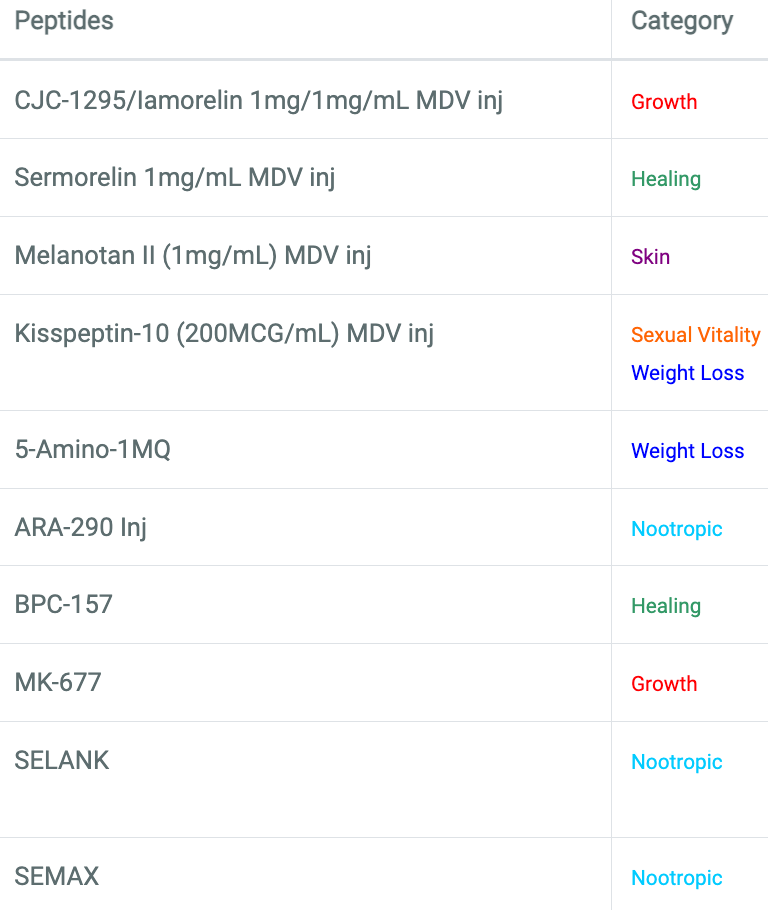WHAT IS PEPTIDE THERAPY?
Peptide therapy is a type of medical treatment that involves the use of peptides, which are short chains of amino acids, to help regulate or stimulate various functions in the body. Peptides play important roles in a wide range of biological processes, including hormone regulation, immune system function, and tissue repair.
Peptide therapy typically involves the administration of peptides via injection, either subcutaneously or intramuscularly. These peptides can be synthetic or derived from natural sources, such as proteins found in the body or in certain foods.
There are many different types of peptides used in peptide therapy, each with their own specific functions and mechanisms of action. Some common examples include growth hormone releasing peptides (GHRPs), which stimulate the production of growth hormone in the body, and melanocortin peptides, which can help regulate inflammation and pain.
Peptide therapy is used to treat a variety of health conditions, including hormone imbalances, autoimmune disorders, chronic pain, and age-related decline. However, like all medical treatments, it should only be used under the guidance of a qualified healthcare provider.
What are the benefits of PEPTIDE
Peptides can offer a range of potential benefits for human health and wellness, depending on the specific type of peptide used and the condition being treated. Some of the most commonly cited benefits of peptide therapy include:
- Increased muscle growth and improved athletic performance: Peptides such as growth hormone releasing peptides (GHRPs) and insulin-like growth factor-1 (IGF-1) can help stimulate the growth of lean muscle mass, leading to improved athletic performance and body composition.
- Improved recovery from injury or illness: Peptides such as thymosin alpha-1 and BPC-157 have been shown to have potent regenerative properties, helping to speed up the healing process and reduce inflammation in injured tissues.
- Improved cognitive function and mood: Certain peptides, such as nootropic peptides, may help improve brain function and enhance mood by boosting neurotransmitter activity and increasing blood flow to the brain.
- Anti-aging effects: Peptides such as epitalon and GHK-Cu have been shown to have anti-aging effects, helping to improve skin quality, boost immune function, and increase longevity.
- Improved metabolic function: Peptides such as glucagon-like peptide-1 (GLP-1) and ghrelin can help regulate appetite, improve insulin sensitivity, and promote weight loss.



